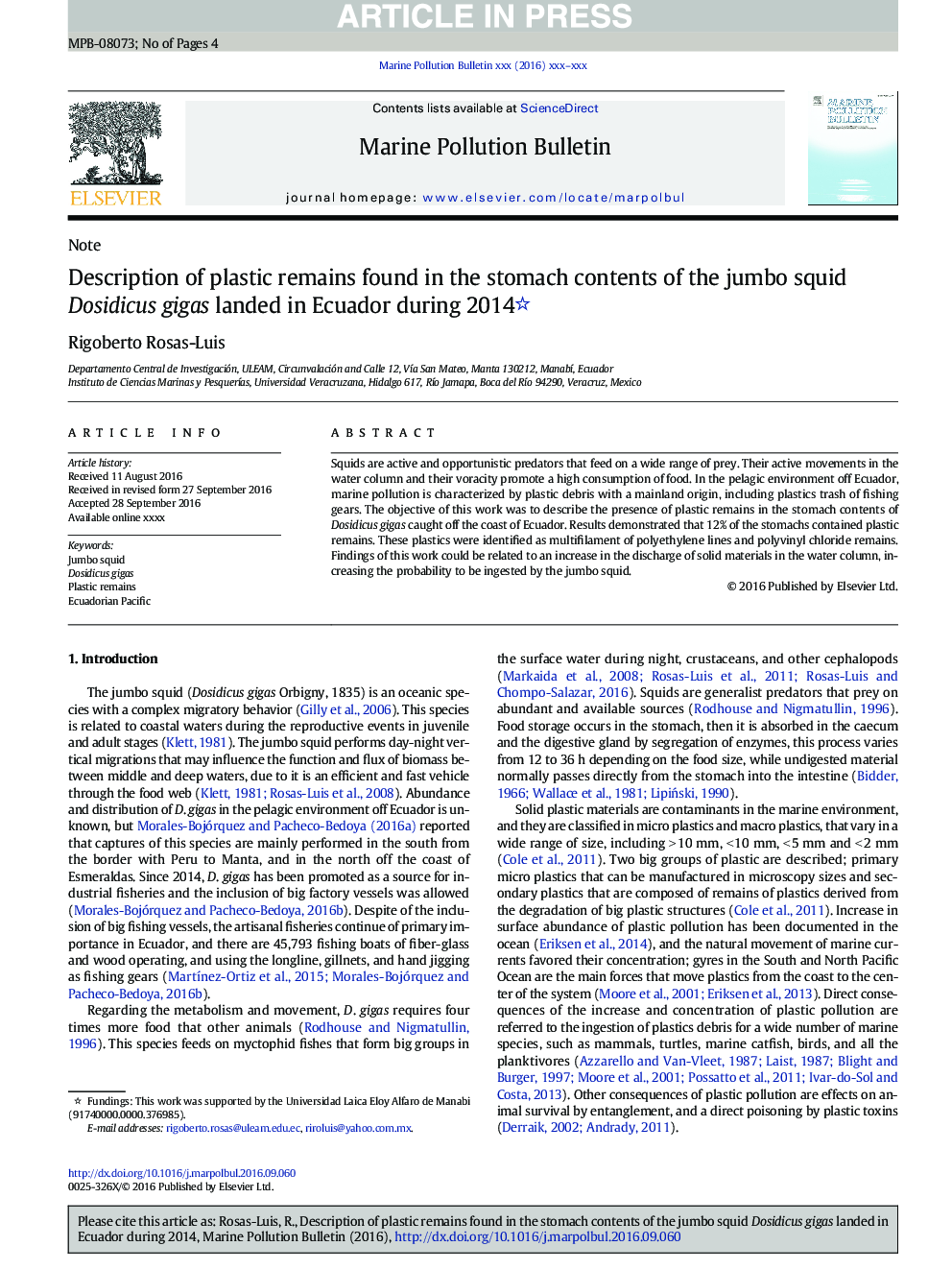| Article ID | Journal | Published Year | Pages | File Type |
|---|---|---|---|---|
| 5757877 | Marine Pollution Bulletin | 2016 | 4 Pages |
Abstract
Squids are active and opportunistic predators that feed on a wide range of prey. Their active movements in the water column and their voracity promote a high consumption of food. In the pelagic environment off Ecuador, marine pollution is characterized by plastic debris with a mainland origin, including plastics trash of fishing gears. The objective of this work was to describe the presence of plastic remains in the stomach contents of Dosidicus gigas caught off the coast of Ecuador. Results demonstrated that 12% of the stomachs contained plastic remains. These plastics were identified as multifilament of polyethylene lines and polyvinyl chloride remains. Findings of this work could be related to an increase in the discharge of solid materials in the water column, increasing the probability to be ingested by the jumbo squid.
Keywords
Related Topics
Physical Sciences and Engineering
Earth and Planetary Sciences
Oceanography
Authors
Rigoberto Rosas-Luis,
